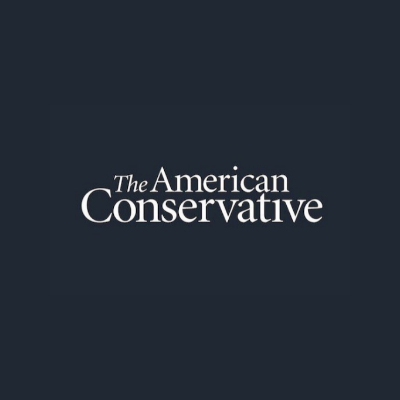 The American Conservative Article Rating
The American Conservative Article RatingThe New American System: Trade for Workers in the 21st Century - The American Conservative
- Bias Rating
- Reliability
N/AN/A
- Policy Leaning
62% Medium Right
- Politician Portrayal
-6% Negative
Continue For Free
Create your free account to see the in-depth bias analytics and more.
Continue
Continue
By creating an account, you agree to our Terms and Privacy Policy, and subscribe to email updates. Already a member: Log inBias Score Analysis
The A.I. bias rating includes policy and politician portrayal leanings based on the author’s tone found in the article using machine learning. Bias scores are on a scale of -100% to 100% with higher negative scores being more liberal and higher positive scores being more conservative, and 0% being neutral.
Sentiments
N/A
- Liberal
- Conservative
| Sentence | Sentiment | Bias |
|---|---|---|
Unlock this feature by upgrading to the Pro plan. | ||
Reliability Score Analysis
Policy Leaning Analysis
Politician Portrayal Analysis
Bias Meter
Extremely
Liberal
Very
Liberal
Moderately
Liberal
Somewhat Liberal
Center
Somewhat Conservative
Moderately
Conservative
Very
Conservative
Extremely
Conservative
-100%
Liberal
100%
Conservative

Contributing sentiments towards policy:
63% : This combination of tariffs and infrastructure subsides was crucial to our becoming the largest economy in the world by 1890.61% : Clay, whose distinguished career made him part of the Great Triumvirate along with Webster and Calhoun, argued for a system of tariffs, a national bank, and subsidies for infrastructure to develop a young nation's economy and manufacturing base.
59% : His whole life he supported tariffs and industrial policy to promote American manufacturing.
57% : Actually, there is nothing conservative about free trade.
57% : We should put tariffs on all products imported from there until we achieve balanced trade, and we must insist that they buy our products if they want access to our market.
56% : Indeed, tariffs remained relatively high until well after the Second World War and much of our historic economic development rested on government subsidies.
56% : In this country pernicious indulgence in the doctrine of free trade seems inevitably to produce fatty degeneration of the moral fiber."
56% : We are engaged in a great competition with China for the future of the world that will determine whether free democracies or totalitarian communism is the system of the future.
55% : There were 12 Republican presidents before Eisenhower and every one promoted using tariffs to build American industry.
55% : President Nixon was for market economics, but when there was a growing trade deficit and a run on our gold, he put tariffs on all our imports until our trading partners agreed to raise the dollar-value of gold.
54% : Our economy was the only significant one in the world and he correctly wanted to see Europe and Asia rebuilt, the establishment of democratic governments, and the defeat of communism.
52% : We challenged the orthodoxy of free trade and used tariffs, threats, negotiation, and industrial policy to help our workers.
52% : We conducted the necessary investigation for eight months, issued an extensive report and began to raise tariffs in the summer of 2018.
50% : No Republican president was really a free trader with the possible except of the Bushes, and even 43 put tariffs on steel imports to save our industry.
50% : In short, it allowed the president through the USTR to levy tariffs on the products of a foreign country that engaged in practices that are "unjustified, unreasonable or discriminatory" and harm the U.S. economy.
47% : Probably, all your professors preached free trade.
47% : To combat Chinese and other unfair trade we massively raised tariffs and used laws not enforced for decades to help our workers and farmers.
45% : For while the forces of the left were consolidating the supremacy of extreme liberalism in American universities, the economics departments of those same schools were just as universally committed to promoting the doctrine of free trade.
45% : Many of you may be thinking, "You are conservatives, and conservatives are for free trade."
43% : We should use tariffs, strategically, to stop unfair trade in our market and to insure the elimination of trade deficits.
42% : All the clever people agreed that free trade was the only sensible course.
42% : Ronald Reagan spoke of free trade, but he insisted on limits on the number of Japanese cars coming to the U.S.
41% : Many economist believe that we should have a free-trade policy that produces the lowest priced goods and then we should enact programs like welfare or unemployment payments to deal with the negative effects this has on our citizens and our country.
40% : He felt deeply for those who had been left behind by free trade.
38% : Free trade is a philosophy of consumption and the elevation of consumption is the essence of materialism.
*Our bias meter rating uses data science including sentiment analysis, machine learning and our proprietary algorithm for determining biases in news articles. Bias scores are on a scale of -100% to 100% with higher negative scores being more liberal and higher positive scores being more conservative, and 0% being neutral. The rating is an independent analysis and is not affiliated nor sponsored by the news source or any other organization.





















